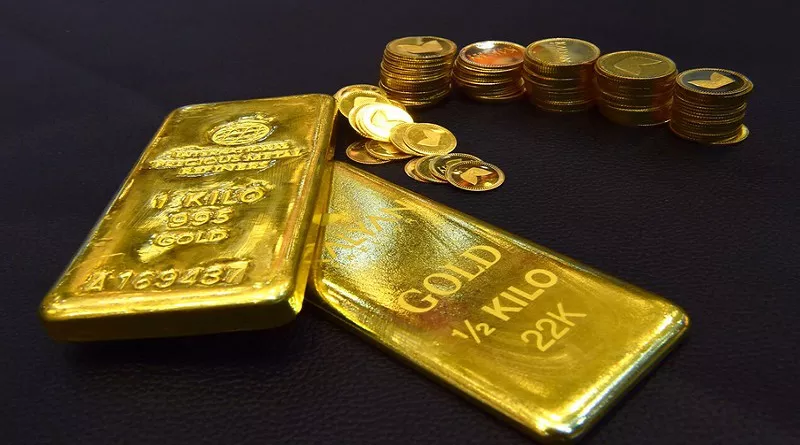Gold futures, a pivotal financial instrument in commodities trading, play a crucial role in the global economy by allowing investors to hedge against price volatility and speculate on future price movements. To navigate the complex landscape of gold futures effectively, one must grasp the intricacies of their expiration dates. This article delves into the mechanics of gold futures, emphasizing the significance of expiration dates and their impact on trading strategies.
What are Gold Futures?
Gold futures are standardized contracts traded on commodity exchanges, such as the COMEX (Commodity Exchange, Inc.), part of the New York Mercantile Exchange (NYMEX). These contracts obligate the buyer to purchase and the seller to deliver a specific quantity of gold (usually 100 troy ounces) at a predetermined price on a specified future date. By locking in prices, both buyers and sellers mitigate the risks associated with gold price fluctuations.
The Role of Expiration Dates
Expiration dates are the backbone of futures contracts, dictating when the agreed-upon transaction must be settled. In the context of gold futures, the expiration date is the final trading day for that particular contract. Post-expiration, the contract is either settled through physical delivery of gold or, more commonly, through cash settlement, where the contract’s value is settled in cash based on the spot price of gold.
Standard Expiration Schedule
Gold futures contracts typically follow a standardized expiration schedule. On the COMEX, gold futures expire on specific months: February, April, June, August, October, and December. The last trading day for a gold futures contract is usually the third last business day of the expiration month. For instance, a December gold futures contract will expire on the third last business day of December.
Key Dates and Deadlines
Several critical dates and deadlines are associated with gold futures contracts:
First Notice Day (FND): This is the first day on which a notice of intent to deliver can be issued by the seller. It usually occurs at least a week before the expiration date. Traders who do not wish to take delivery of physical gold must roll over their positions to a later contract or close their positions before this day.
Last Trading Day: The final day on which the gold futures contract can be traded. This is generally the third last business day of the expiration month. Traders must either close their positions or ensure they have sufficient capital or physical gold to meet their obligations.
Settlement Day: Following the expiration, this is the day when the contract is settled, either through physical delivery or cash settlement.
Implications of Expiration
Understanding the expiration dates of gold futures is crucial for several reasons:
Position Management: Traders must be vigilant about expiration dates to avoid unwanted deliveries or settlements. For instance, a trader who does not wish to receive physical gold must close or roll over their position before the First Notice Day.
Liquidity Considerations: As the expiration date approaches, the liquidity of the expiring contract typically decreases, while the liquidity of the next contract increases. This shift necessitates strategic position adjustments to maintain liquidity and avoid slippage.
Price Volatility: Expiration periods often see increased volatility as traders close out positions and roll over contracts. Understanding these patterns can help traders better navigate price fluctuations.
Rolling Over Contracts
To avoid the complexities of settlement, many traders opt to roll over their contracts. Rolling over involves closing the current position in the expiring contract and opening a new position in a contract with a later expiration date. This process allows traders to maintain their market exposure without the need for physical delivery or cash settlement.
The rollover process is not without costs. The price difference between the expiring contract and the new contract, known as the “rollover cost” or “contango/backwardation effect,” can impact the profitability of the trade. In a contango market, where future prices are higher than the spot price, rolling over may incur additional costs. Conversely, in a backwardation market, where future prices are lower, rolling over could potentially be profitable.
Strategies for Managing Expiration
Effective management of gold futures expiration involves several strategies:
Monitoring Expiration Dates: Regularly tracking the expiration calendar helps traders stay ahead of critical deadlines and make informed decisions.
Using Rollover Techniques: Deciding when and how to roll over contracts can optimize market exposure and manage costs.
Hedging: Hedging positions using options or other derivatives can mitigate the risks associated with expiration-related volatility.
Arbitrage Opportunities: Experienced traders may exploit arbitrage opportunities arising from price discrepancies between expiring and new contracts.
Regulatory and Exchange Rules
Regulatory bodies and exchanges impose specific rules governing futures trading, including expiration and settlement procedures. Traders must adhere to these rules to avoid penalties and ensure smooth transactions. For example, the COMEX has stringent requirements for margin levels, position limits, and delivery procedures. Staying informed about these regulations is essential for compliance and successful trading.
See Also The Best Times to Trade Futures
Conclusion
Gold futures, with their standardized expiration schedules and settlement mechanisms, provide a valuable tool for hedging and speculation in the gold market. Understanding the nuances of expiration dates is paramount for traders to effectively manage their positions, mitigate risks, and capitalize on market opportunities. By staying informed about key dates, employing strategic rollover techniques, and adhering to regulatory guidelines, traders can navigate the complexities of gold futures with confidence and precision. As the global economy continues to evolve, mastering the intricacies of gold futures expiration will remain a vital skill for market participants seeking to thrive in the dynamic world of commodities trading.


